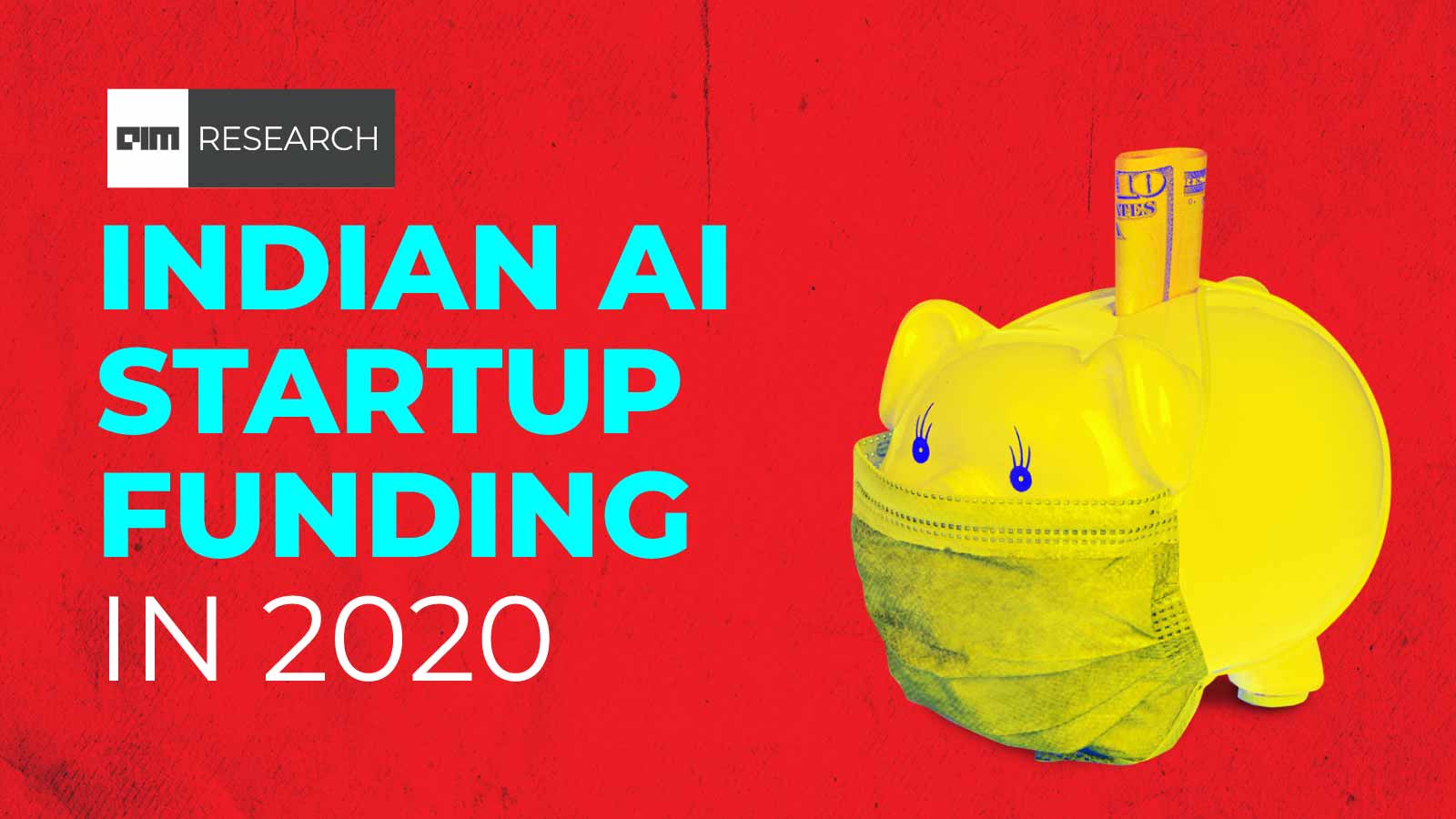Despite the pandemic and the resulting lockdowns, the AI startups in India have attracted total funding of $836.3 million — the largest funding outlay in the last seven years at a 9.7% year-on-year growth — last year, a report by AIMResearch, titled Indian AI Startup Funding in 2020, showed. The research also projects double-digit growth in the next 5-6 years, ushering in a period of consolidation and maturity of the Indian data science market.
The number of startups that received funding in 2020 doubled from 2019, signalling the rising cachet of India’s data science startups, regardless of size and revenue stage. The research covered both pure-play data science startups and startups that leverage AI or Analytics or any other Deep Learning domain, such as Computer Vision or NLP, to develop a core solution/platform for enterprises/consumers across sectors or industries.
The report details the year-on-year comparison of funding, location-wise distribution of startups, funding in terms of high-value investments, month-wise investments, stages and series of funding, among others.
Access the complete report here.
While 2019 saw a big chunk of investments going to “pure-play” data startups, in 2020, most of the funding went to startups that utilised data science or deep learning technologies to develop their core digital or technology products and services across various sectors. In 2020, robotics and machines oriented startups received $7 million in funding, unlike the paltry investments in 2019.
On the industry side, AI startups in agriculture, industrial & manufacturing, real estate, and consumer goods sectors attracted cumulative funding of $23.3 million.
In a city-based breakup, Bangalore’s startups received the highest investment for the third time in a row. The cumulative funding for startups based in Bangalore stood at $535.1 million. This was followed by startups based in Delhi NCR, with combined funding of $230.6 million, and Mumbai with total funding of $42.7 million.
As per the report, eight startups received $25 million-plus funding, and nine startups received more than $20 million. While the total number of high-value funding shrunk, the companies that received funding almost doubled in 2020 compared to 2019.
In terms of stages and series of funding, the investments made under the general round of Venture funding were the highest in proportion and amount at 20.6% and $172.1 million, respectively. Apart from the general Venture round of funding, the investments under the late-stage Series D funding had the highest value. While Late-Stage Rounds received $302 million or 49% of the financing, Early-stage rounds received $318 million or 51%.
In terms of top investment funds, Google Ventures – the venture arm of search engine giant and technology firm Alphabet Inc. — invested the largest amount in AI startups in 2020. Google invested $145 million in the digital media startup Glance. This was followed by General Catalysts investing $125 million in EightFold AI in a Series D, and ICONIQ Capital investing $90 million in Zinier Inc in a Series C.
In 2019, Sequoia Capital India invested approximately $120 million across several AI startups. This year, the fund made a combined investment of $41.5 million across four startups — Qure AI, InVideo, Salesken and Wobot Intelligence.
According to the report, the artificial intelligence domain attracted the highest investment in 2020 at $443.8 million, which is more than half the investment received overall at 53.1%. It was followed by the analytics domain with a cumulative investment of $214.8 million. The Automation field received total financing of $91.7 million, followed by Conversational AI and NLP domain with $38.6 million. Robotics and IoT received 0.8% and 0.6% of the total funding, respectively, in 2020.
As per the report, cross-industry focused startups received $251.5 million accounting for the 30% of the total funding outlay.
In terms of month-wise investment, the funding in startups was at the highest in December at $198.5 million, followed by November at $145.4 million, September at $137.8 million, and January at $104.3 million.
Access the complete report here:










































































